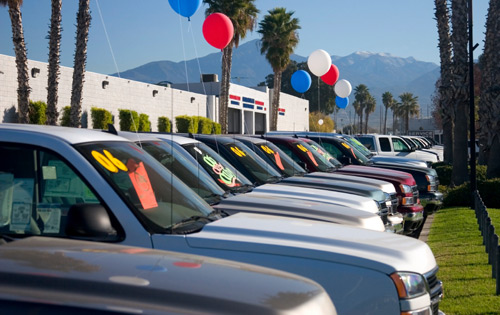If you are in need of a new vehicle, think twice before heading straight to the new car dealership. When it comes to getting your money’s worth, buying a used car is a much better way to go: when you buy a used car, you know that the biggest depreciation already has taken place.
And while buying a used car has its obvious financial advantages, there are still a few details to be aware of before starting your search. Here are six things you need to know before buying a used car.
Set your budget
Setting your budget early on in the car-buying process will help you avoid difficult situations down the road. There’s a reason why wedding dress consultants ask for a client’s budget before showing them any dresses – the last thing you want is to fall in love with a car that’s way out of your price range.
It’s also important to explore financing options during this stage, but be aware that financing options for used cars differ greatly from new car loans and payments.
Think hard about what you want and need
Another vital step to take before you move forward with your used car research is to think about what you really need. If you need a car to get to and from work, and your place of employment is just a few miles away, you can likely get away with a used car that has higher base mileage.
Run a vehicle history report
Once you start to research and isolate specific car options, you’ll need to do your due diligence and run a vehicle history report on each car you’re considering. Vehicle history reports will reveal routine and non-routine service on many vehicles, including a history of body repairs following accidents. They can be obtained through easily-accessible sites like Carfax and Autocheck.
Be prepared to do a test drive
Doing a test drive is non-negotiable. You wouldn’t buy a pair of shoes without trying them on to make sure they fit and feel right, so you certainly shouldn’t skip this step when it comes to a much bigger investment, like a car.
During your test drive, be hyper-aware of how the car drives and how you feel in it. Make sure to drive the car in a variety of environments, including highways, uphill, downhill, and in inclement weather, if possible, to get the full scope of how it handles these terrains.
If anything seems off or doesn’t work the way you think it should, do not be afraid to speak up to the owner or dealership. You are entitled to ask as many questions as you feel necessary.
Get the car inspected
Even if the car passes your personal inspection and comes out favorably from the vehicle history report, it’s wise to also get an inspection done by a professional.
Certain screenings, like trying out the turn signals or remembering to check the warning lights are obvious, but a professional inspector will be able the test all nuances and necessities of your potential future vehicle.
Do your research on insurance options
To protect your investment and ensure your own safety, you should research and be prepared to purchase car insurance. Fortunately, there is no shortage of options for car insurance, but it definitely pays to shop around to find an option that best fits your budget and needs.
Furthermore, you should know that many dealerships require proof of insurance before agreeing to sell you the car. This will also be the case if you are buying from an individual.

